A Day in the Life of an Academic Geriatric Nurse
Patricia Holkup, PhD, RN
Associate Professor
Montana State University, Bozeman
College of Nursing, Missoula Campus
Missoula, Montana
Claire M. Fagin Post-doctoral Fellow 2005-2007
Research: Historical Trauma and Unresolved Grief: A Culturally Anchored Intervention for American Indians
As Associate Professor at Montana State University, Patricia Holkup, PhD, RN, conducts research primarily in collaboration with American Indian communities in Montana.
Dr. Holkup’s current project involves a three-day grief retreat. In addition to collecting quantitative data to assess the effectiveness of the retreats, interviews are conducted with participants to explore their experiences of grief.
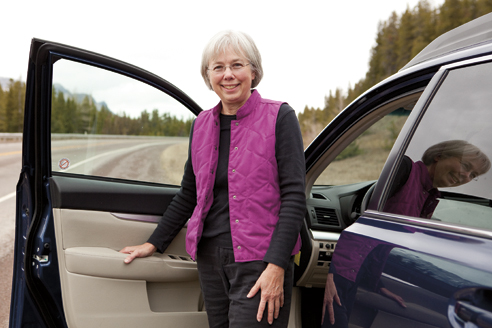 Dr. Patricia Holkup While pursuing an advanced nursing degree, Dr. Holkup became interested in a research method that explores the reflective understanding of human experiences. As a doctoral student, she planned to use this method in a study about the lived experience of growing older. She and her advisor, Toni Tripp-Reimer, PhD, RN, a nurse anthropologist, decided to add a cross-cultural component to her research project. As Dr. Holkup learned about cross-cultural research, particularly with American Indians, she discovered the significance of reciprocity and generosity
for Tribal people. Knowledge of these values underscored the importance of incorporating a service component into research with Tribal communities.
“Patti is an unusual person to be able to do this work. Her work is never invasive and it’s always about the community.”
Dr. Patricia Holkup While pursuing an advanced nursing degree, Dr. Holkup became interested in a research method that explores the reflective understanding of human experiences. As a doctoral student, she planned to use this method in a study about the lived experience of growing older. She and her advisor, Toni Tripp-Reimer, PhD, RN, a nurse anthropologist, decided to add a cross-cultural component to her research project. As Dr. Holkup learned about cross-cultural research, particularly with American Indians, she discovered the significance of reciprocity and generosity
for Tribal people. Knowledge of these values underscored the importance of incorporating a service component into research with Tribal communities.
“Patti is an unusual person to be able to do this work. Her work is never invasive and it’s always about the community.”
Emily Matt Salois
With a community representative, Dr. Holkup explored the needs of American Indian elders in Montana. A Tribal social worker introduced Dr. Holkup to a culturally compatible family conference model for addressing child welfare issues. This model draws on family strengths and helps the family come together to address the safety and well-being of the children.
Dr. Holkup and her team adapted the model to work with families who had concerns about elder mistreatment. The model was readily accepted because it honors the community’s definition and meaning of family, spirituality, the use of ritual, and the value of non-interference.
Dr. Holkup is committed to using a community-based participatory approach in her research with Tribal communities. “Patti is an unusual person to be able to do this work,” says Emily Matt Salois, MSW, ACSW, an enrolled member of the Blackfeet Nation in Browning, Montana, and a co-investigator on Dr. Holkup’s current project. “I can’t say enough good things about the way Patti does her work. It’s never invasive and it’s always about the community.”
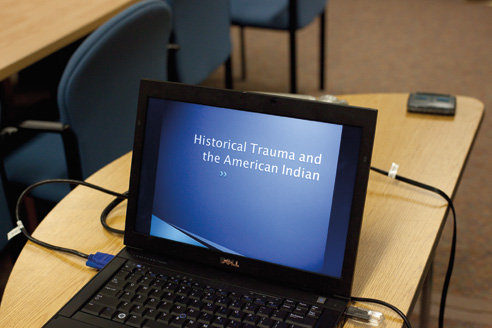
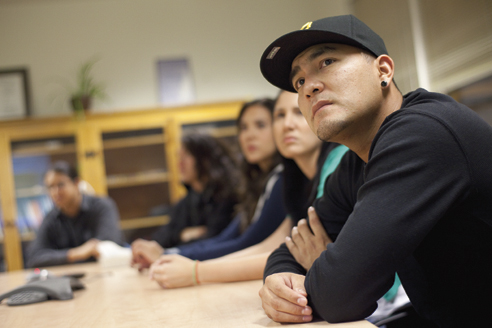 Dr. Holkup teaches a nursing class at Montana State University, which is sometimes provided via videoconferencing to College of Nursing campuses across the state.
Dr. Holkup teaches a nursing class at Montana State University, which is sometimes provided via videoconferencing to College of Nursing campuses across the state. 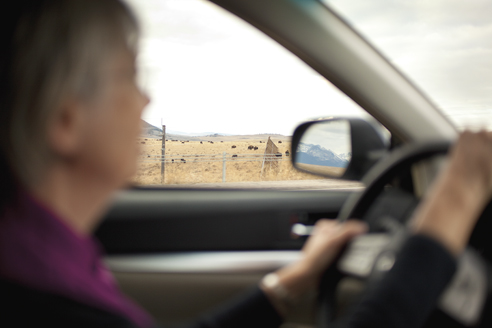 Dr. Holkup travels to Browning, Montana, on the Blackfeet Nation Reservation to conduct research for the Historical Trauma and Unresolved Grief project, which includes a retreat for American Indians that combines components of Western psychological grief counseling with Native healing traditions.
Dr. Holkup travels to Browning, Montana, on the Blackfeet Nation Reservation to conduct research for the Historical Trauma and Unresolved Grief project, which includes a retreat for American Indians that combines components of Western psychological grief counseling with Native healing traditions.
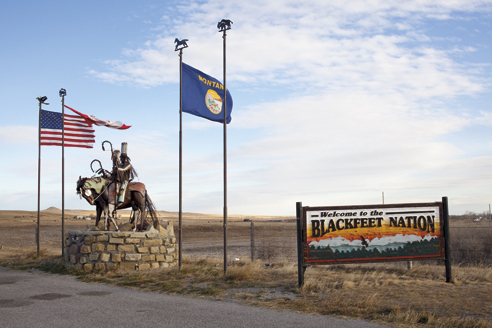
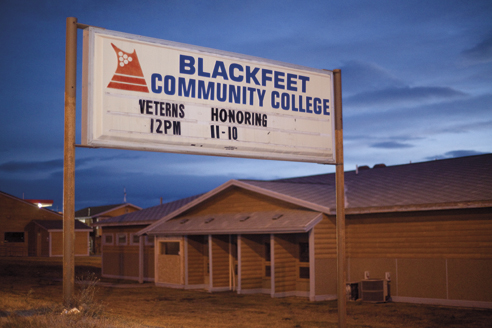
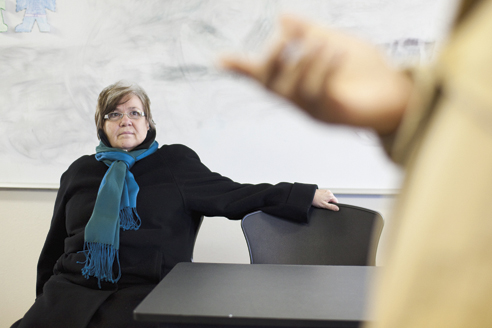
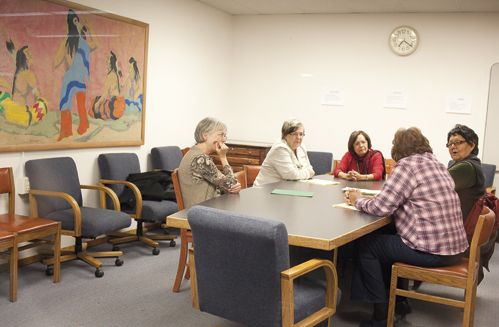 Drs. Holkup and Swaney discuss the grief retreat with Emily Matt Salois, MSW, ACSW, (co-investigator) and grief counselors Melveena Malatare and Mary Louise DeRoche.
Drs. Holkup and Swaney discuss the grief retreat with Emily Matt Salois, MSW, ACSW, (co-investigator) and grief counselors Melveena Malatare and Mary Louise DeRoche.
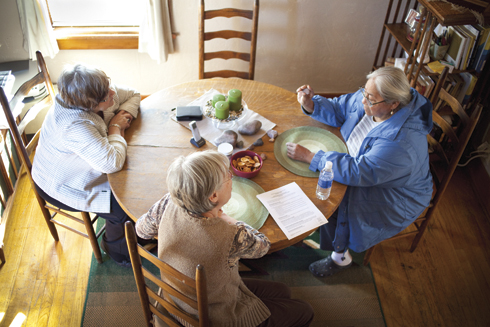 Dr. Holkup and Dr. Gyda Swaney, co-investigator on the Historical Trauma and Unresolved Grief project, interview a participant of the grief retreat. During the retreat, participants address issues of personal grief, community grief, and unresolved grief from historical trauma.
Lisa Skemp, PhD, RN, MA ›
Dr. Holkup and Dr. Gyda Swaney, co-investigator on the Historical Trauma and Unresolved Grief project, interview a participant of the grief retreat. During the retreat, participants address issues of personal grief, community grief, and unresolved grief from historical trauma.
Lisa Skemp, PhD, RN, MA ›